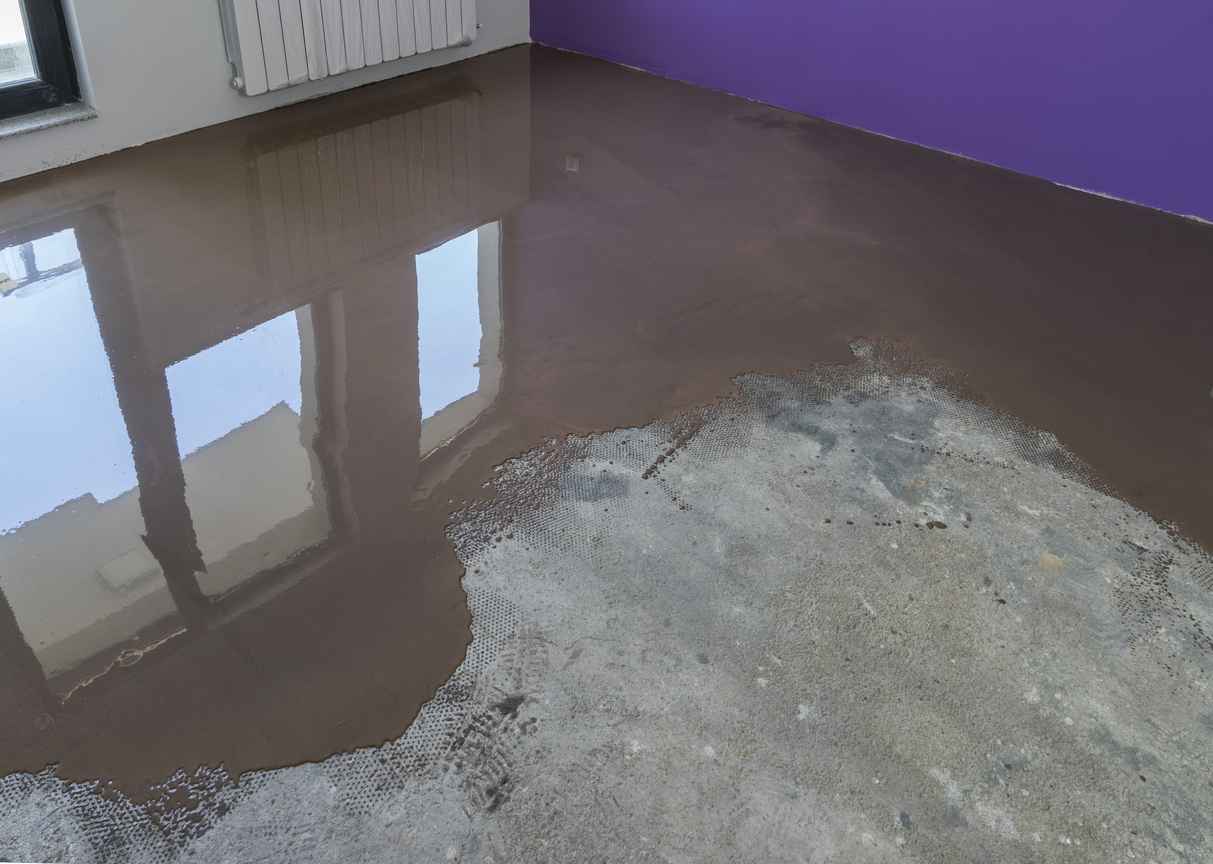Resources
Why is My Basement Floor Wet?

A wet basement floor can be a frustrating and concerning issue for homeowners. It not only affects the usability of the space but also poses risks to your home’s structural integrity and your family’s health. Understanding the causes of a wet basement floor and how to address them is crucial in maintaining a dry and safe environment. This blog will explore common reasons for a wet basement floor and provide solutions to keep your basement dry.
Common Causes of a Wet Basement Floor
Discovering a wet basement floor can be alarming, but understanding the root cause is the first step toward finding a solution. Various factors can contribute to this issue, ranging from external water intrusion to internal humidity problems. Identifying the specific cause will help you implement the most effective remedy to keep your basement dry and safe.
Poor Drainage
Improper drainage around your home is one of the leading causes of a wet basement floor. When rainwater or melting snow is not directed away from your home’s foundation, it can seep into the basement. Ensuring that gutters and downspouts are clean and functioning correctly, and that the ground around your home slopes away from the foundation, can help prevent water accumulation.
Hydrostatic Pressure
Hydrostatic pressure occurs when the soil around your home becomes saturated with water, increasing the pressure against the foundation walls. This pressure can force water through cracks and porous concrete, leading to a wet basement floor. Installing a sump pump and ensuring proper drainage can alleviate hydrostatic pressure.
Cracks in the Foundation
Cracks in the foundation are a common entry point for water. These cracks can develop over time due to settling, temperature changes, or poor construction. Sealing foundation cracks with epoxy or polyurethane foam can prevent water from seeping into your basement.
Condensation
Sometimes, a wet basement floor is caused by condensation rather than an actual leak. Warm, humid air entering a cool basement can condense on floors and walls, leading to moisture buildup. Using a dehumidifier and insulating basement walls can help reduce condensation.
Plumbing Leaks
Leaks from plumbing fixtures or pipes can also cause a wet basement floor. Inspecting your plumbing system regularly and repairing any leaks promptly can prevent water damage in your basement.
Improper Window Wells
Basement windows that are not properly sealed or lack adequate window wells can allow water to enter your basement. Ensuring that window wells are installed correctly and have proper drainage can prevent water from pooling around basement windows.
Solutions for a Wet Basement Floor
Addressing a wet basement floor requires a combination of preventive measures and targeted solutions. By improving drainage, sealing cracks, and controlling humidity, you can effectively mitigate water intrusion and protect your basement from future moisture problems. Here are some key strategies to consider:
Improve Exterior Drainage
Ensure that your home’s gutters and downspouts are clean and direct water at least 6 feet away from the foundation. Grading the landscape around your home to slope away from the foundation can also help.
Install a Sump Pump
A sump pump is an effective solution for managing groundwater and preventing basement flooding. It collects water in a sump basin and pumps it away from your home, keeping your basement floor dry.
Seal Foundation Cracks
Using epoxy or polyurethane foam to seal foundation cracks can prevent water from entering through these vulnerable points. It’s essential to address both interior and exterior cracks for comprehensive protection.
Use a Dehumidifier
A dehumidifier can help control humidity levels in your basement, reducing condensation and moisture buildup. Aim to keep the humidity level below 60% to prevent mold growth.
Repair Plumbing Leaks
Regularly inspect your plumbing system for leaks and repair them promptly. This includes checking pipes, water heaters, and any other fixtures that could be sources of leaks.
Install Window Well Covers
Window well covers can prevent water from accumulating around basement windows and entering your home. Make sure the covers are properly fitted and that the window wells have adequate drainage.
Basement Waterproofing in Michigan
For expert basement waterproofing services, contact Michigan Basements. Our experienced team is dedicated to helping you keep your basement dry and your home protected. Don’t wait until the problem worsens—reach out to Michigan Basements for all your basement waterproofing needs today.


